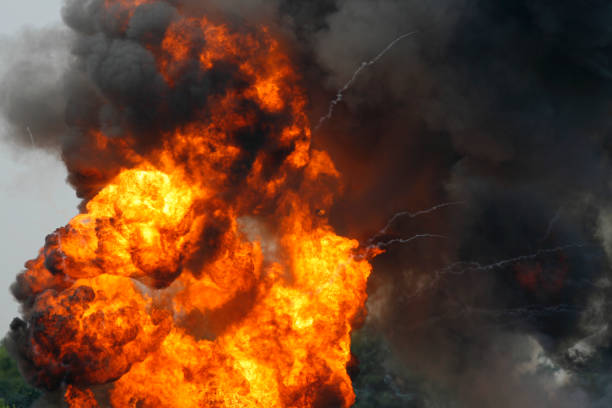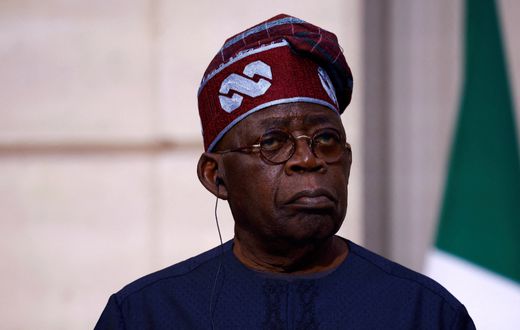In an impressive development for West Africa’s energy sector, Blue Ocean Investments—a subsidiary of Puma Energy—has been recognized with a top honor at the recent Ghana Oil and Gas Awards (GOGA). Their Tema Multi Product Terminal clinched the revered ‘Best Depot’ title, a recognition that is sparking conversations from Lagos to Accra and beyond about what this achievement means for regional oil storage, distribution, and industry standards.
The annual GOGA Awards are regarded as a flagship event in Ghana’s energy sector, spotlighting organizations and professionals whose innovation, dedication, and excellence are driving the industry forward. This year’s recognition for Blue Ocean’s Tema Multi Product Terminal, according to award organizers, results from its “cutting-edge infrastructure, world-class safety protocols, and outstanding operational record.”
The event brought together key industry leaders, government officials, international observers, and stakeholders from across West Africa, reinforcing the importance of collaboration and healthy competition in ensuring reliable energy solutions for growing economies. According to Ghanaian business commentator Nana Owusu, “Winning at GOGA is more than just a corporate award—it sends a message to Nigeria, Côte d’Ivoire, and the wider subregion. It means your operations are not just meeting but redefining the standards.”

Puma Energy celebrates Blue Ocean’s prestigious win at the GOGA Awards
Michael Kyeremanteng, Operations Manager at Blue Ocean, expressed pride in the terminal’s achievement, noting, “This award is a testament to Blue Ocean’s unwavering commitment to excellence and innovation in the energy sector. We are incredibly proud of our continuous efforts aimed at setting the gold standard in depot operations and contributing significantly to Ghana’s energy development.” (Source: GOGA 2024, Accra).
For many Nigerian readers and other West Africans, this recognition is significant. With frequent reports of fuel shortages, depot backlogs, and logistical bottlenecks across the region—most recently during the 2023 fuel queue crisis in Nigeria— the question of consistent and efficient petroleum storage remains a hot topic. Reliable depot infrastructure like Blue Ocean’s not only ensures smoother delivery of petrol, diesel, and other products to end-users but also helps stabilize prices and support industrial growth.
According to Abuja-based energy analyst, Dr. Lawan Musa, “Facilities such as the Tema Multi Product Terminal act as linchpins in the West African supply chain. Without modern and efficiently managed depots, we risk transportation bottlenecks and price hikes that directly affect small businesses and everyday consumers.” He highlighted that similar investments in Nigeria, such as upgrades to Apapa and Warri depots, are crucial if the sector is to keep pace with growth projections and the aspirations of the African Continental Free Trade Area (AfCFTA).
A key reason for Blue Ocean’s win, as cited by GOGA judges, is the emphasis placed on safety, resilience, and automation. The Tema facility integrates advanced fire suppression systems, digital monitoring, and robust staff training protocols—features that experts claim reduce environmental risks and operational downtime. Industry observers point out that such investment can help prevent incidents like the notorious 2021 pipeline fire in Lagos, which exposed the vulnerability of aging infrastructure.
“Depot safety is not just about ticking the boxes. It’s about staff welfare, preventing lost revenue, and building community trust,” explains oil and gas consultant Abigail Uche, noting that multinationals are increasingly held to stringent safety compliance by local regulators. Ghana’s National Petroleum Authority (NPA) has been lauded for its regular facility audits, a practice that Nigerian authorities have been encouraged to emulate more rigorously.
Community and consumer perspectives have also featured in the conversation. Local transport unions and downstream marketing associations in both Ghana and Nigeria are urging investors to take cues from the Tema model by prioritizing seamless logistics and round-the-clock supply. “Our members have suffered from fuel shortages that cripple our buses and taxis,” says Ibrahim Salisu of the Lagos Drivers Union. “We welcome any demonstration of excellence in the storage and distribution network—whether it’s in Accra, Port Harcourt, or beyond.”
Economists point out that efficient fuel terminals translate to better job opportunities, reduced operating costs for logistics firms, and greater overall confidence in the local business climate. The ripple effects can extend to Nigerian SMEs seeking to expand across West Africa or Ghanaian exporters looking southward.
In a broader context, Blue Ocean’s GOGA win underscores the growing influence of indigenous and regional firms in transforming Africa’s energy landscape. While foreign investment has played a sizable role, the rise of locally rooted champions is changing the narrative. Institutions like the African Refiners and Distributors Association (ARA) stress the need for homegrown companies to lead on innovation, social responsibility, and environmental stewardship.
As regional trade intensifies, with initiatives such as AfCFTA removing many barriers, seamless energy infrastructure—and the professionals operating it—will remain pivotal. According to ECOWAS Energy Report 2023, over 60% of West Africa’s cross-border trade depends on efficient oil and gas logistics. Blue Ocean’s recognition may inspire a new wave of investment and competition among competitors in Nigeria, Ghana, and throughout Francophone West Africa.
Looking ahead, observers urge stakeholders to balance celebration with realism. Even world-class depots face challenges such as climate risks, currency volatility, and regulatory uncertainty. Moreover, there are calls for greater environmental scrutiny and community consultation, especially as West Africa strives to meet SDGs and climate commitments. Civic groups and environmentalists caution that accolades must go hand-in-hand with transparent reporting and ongoing improvement.
Ultimately, Blue Ocean’s achievement raises important questions about the path forward for Nigeria, Ghana, and the region: How can more terminals achieve such operational excellence? What role should governments and private partners play to make this the norm rather than the exception? With fuel demand projected to rise sharply, and energy diversification efforts gaining pace, the story of Tema’s terminal offers both hope and a roadmap.
What are your thoughts on the impact of award-winning energy infrastructure like Blue Ocean’s Tema terminal for Nigerians and West Africans? Do you think local depots can reach similar standards across the region? Drop your views below—and let’s keep the conversation going!
Have a story to share or want to see your voice featured in stories about West Africa’s energy sector? Reach out to us! If you have tips, business insights, or want to sell your story, email us at
story@nowahalazone.com.
For general feedback or support, contact
support@nowahalazone.com.
Don’t forget to follow us on
Facebook,
X (Twitter), and
Instagram
for the latest updates, business insights, and community stories!









